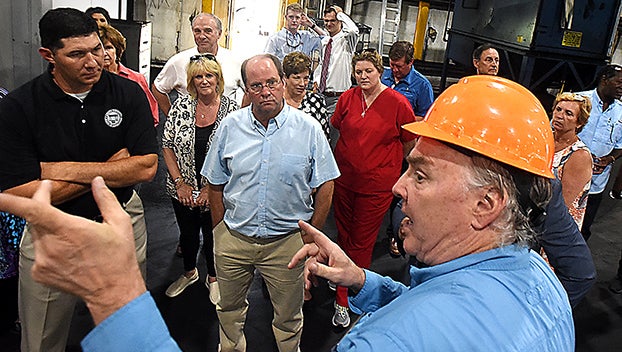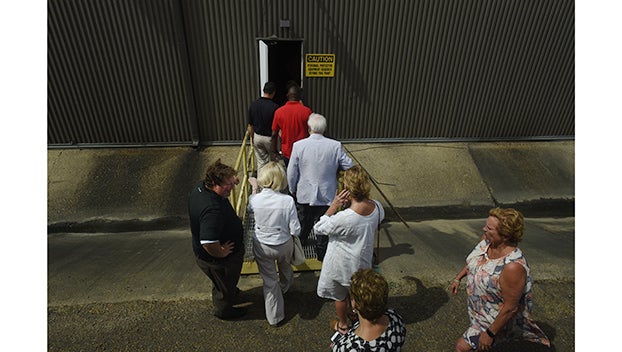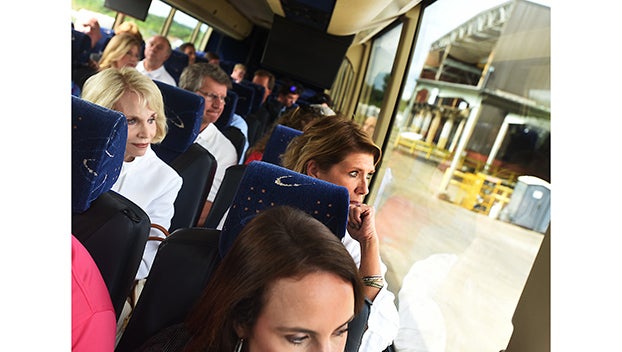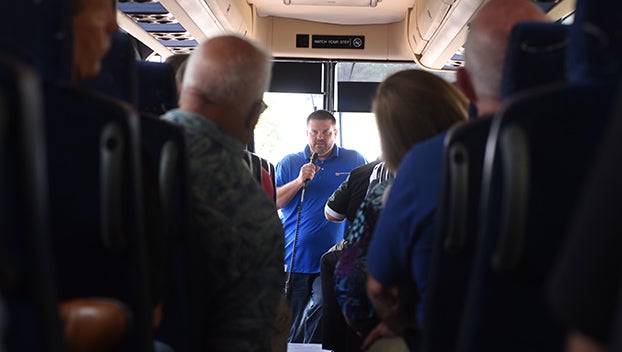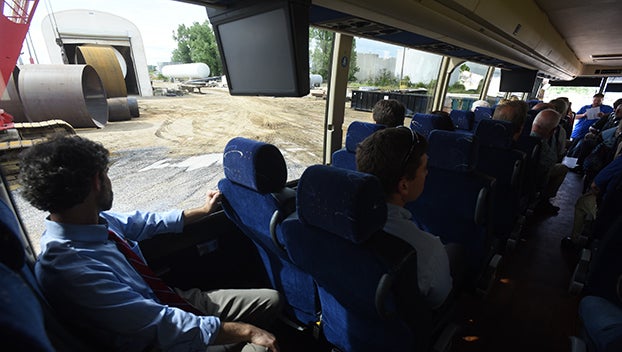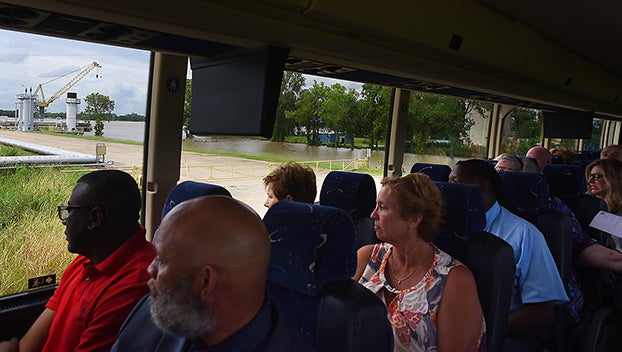Seeing the magic: Multi-million dollar investments highlighted on industry tour
Published 12:19 am Saturday, June 22, 2019
NATCHEZ — Local economic development officials pulled back the curtain on the past, present and future of the area’s significant industrial projects Monday evening.
More than 40 Natchez Inc. and Natchez NOW members took a bus tour of more than 20 industries and future construction sites to get an update on the economic heartbeat of the community.
Natchez NOW is the private business funding arm for Natchez Inc. Members of Natchez NOW, in addition to the City of Natchez, the Town of Vidalia and Adams County, help fund and steer Natchez Inc., the area’s leader in economic development.
In all, the tour represented millions of dollars of investment in the community and hundreds of jobs for the area.
“The purpose of the bus tour is to give as much information about each project and the effort and investment that is being made in the community,” Natchez Inc. Executive Director Chandler Russ said during Monday’s bus tour.
The tour included stops on both sides of the Mississippi River, including visits to facilities at the Natchez-Adams County Port, projects at the former International Paper plant site and industrial areas in and around Vidalia.
Highlights of the tour included Delta Energy, Great River Industries, Vidalia Denim and Syrah Resources.
Delta Energy
One of the biggest projects underway in the Miss-Lou is Delta Energy, a project CEO Jeff Flannery said has been purposefully kept quiet in Natchez and the rest of the world while the company works to “put Natchez on the map.”
The project, Flannery said, will revolutionize the tire and rubber industry.
Flannery showed participants the progress of the project at the company’s facility at the former International Paper plant site.
Once completed, Delta Energy will have spent $40 million on the facility, Russ said on the tour.
“We are creating the world’s first commercial-scale plant that takes used tires and turns those used tires into useful materials for both the tire and rubber manufacturing,” Flannery said.
In September, Flannery said the company plans to process up to 5 million tires a year — more tires than the company will be able to collect in Mississippi, Louisiana and Arkansas.
“How does this technology work? All I can really tell you is it is magic,” Flannery said.
Flannery said the process that his scientific team from Pittsburgh has been developing for 15 to 16 years takes piles of recycled tires and turns them into “a carbon product, a liquid solvent product and a gas” with virtually no emissions.
“We take a ton of nothing and turn each one of those tons into a thousand dollars. So if that is not magic, I do not know what is,” Flannery said.
The company has received support from Bridgestone, Walmart and other partners, and hopes to be in full production in the coming months, Flannery said.
Great River Industries
Great River Vice President of Operations Kevin Sullivan joined the tour to detail the companies continued success at the Natchez-Adams County Port.
With more than 300 employees company-wide, Great River Industries continues to grow each year.
Great River makes tanks and vessels for the chemical industry, refineries and the food and beverage industry. The company is also building the reactors for Delta Energy.
With 80 jobs in the shop, Sullivan said the company needs probably another 20 employees for the local business.
“We sold $74 million this fiscal year, $54 million this calendar year,” Sullivan said. “We have $70 million worth of backlog, which is huge. It allows us to keep expanding our business.”
Vidalia Denim Mills
During the tour, participants got the opportunity to visit the former Fruit of the Loom plant in Vidalia, which is being transformed in Vidalia Denim Mills.
When fully operational, the plant plans to spin cotton into denim to be sold to blue jean manufacturers.
Concordia Economic Development Director Heather Malone said the company has agreed to purchase and convert the old Fruit of the Loom facility with a minimum of 300 jobs and a minimum of $40 million capital investment.
The company is currently working on converting the plant but has been met with delays in construction.
“The foundation of the existing building was built with post-tensioned cables,” Malone said.
To install a return air system, the company needed to cut through a portion of the existing floor, Malon said.
“They were unable to cut through the floor due to the cables,” Malon said.
After reengineering the project, new plans for construction are awaiting approval from the state fire marshal for review, Malone said.
“Hopefully we will get those approved soon, and they will begin construction on that piece of the project,” Malone said.
Malone said 100 truckloads of equipment and more than 10,000 bales of cotton had been shipped to the site for the spinning operation.
Malone said she hopes the recruitment process for Vidalia Denim will begin soon.
“We hope toward the end of summer, that we will be in the position to start with job fairs,” Malone said.
Syrah Technologies
One of the last stops of Tuesday’s bus tour was at Syrah Resources located in the Vidalia Industrial Park near the future Vidalia Port.
A U.S. subsidiary of the Australia company Syrah Resources, Syrah Technologies plans to convert flake graphite into a purified form of the material that will be used for the lithium-ion battery market. The company’s primary target is the electric car market.
COO Paul Jahn welcomed participants to the plant, which is currently under construction.
“This facility here will be the first of its kind anywhere on the planet outside of China,” Jahn said.
The company made its first unpurified spherical granite material in January, Jahn said, which has been sampled to half a dozen potential clients.
Part of the construction for the plant has been delayed because a gas line cannot be installed until the Mississippi River falls below flood stage.
“Later this summer we hope to bring the purification line on stream and begin making the purified material,” Jahn said.
Those on the bus tour were allowed to walk through the facility, but were requested not to take video or photographs during the visit.
“Even the most innocent of photos is valuable intelligence if it ends up in the wrong party’s hands,” Jahn said. “Maintaining our competitiveness here is good for us, and it is good for the community.”
The $25 million facility is slated to create 25 jobs.


